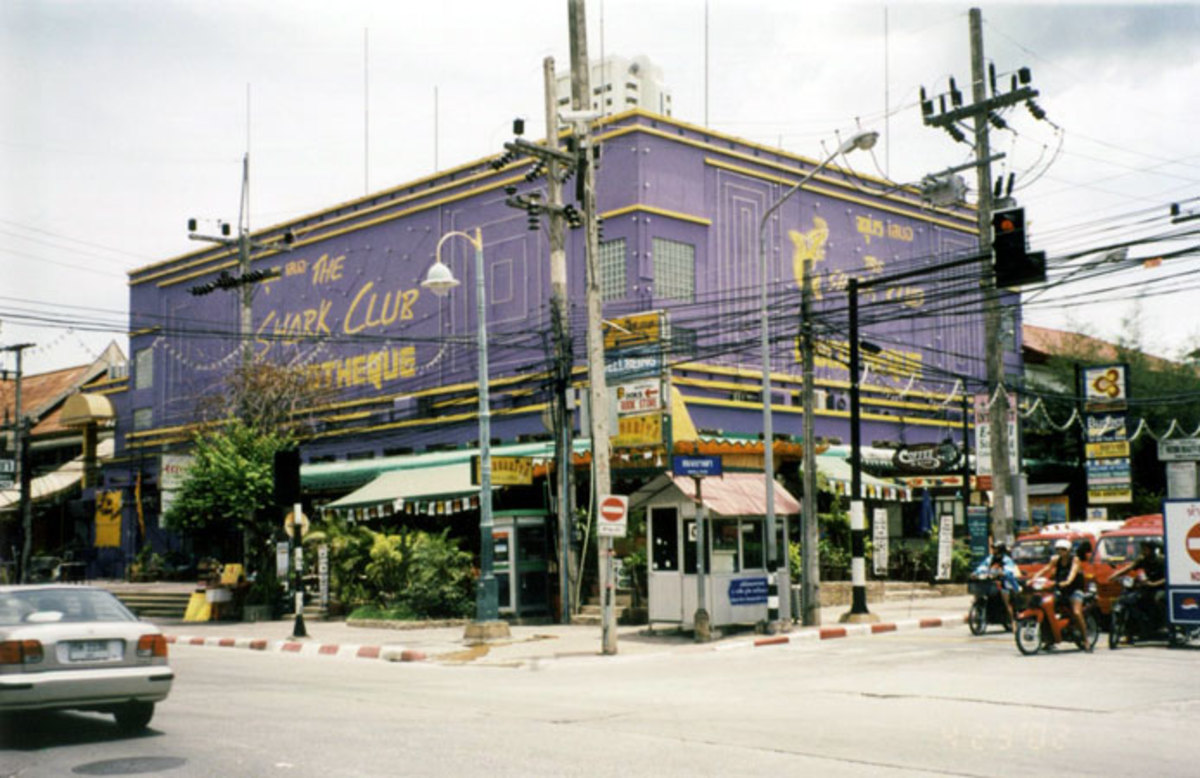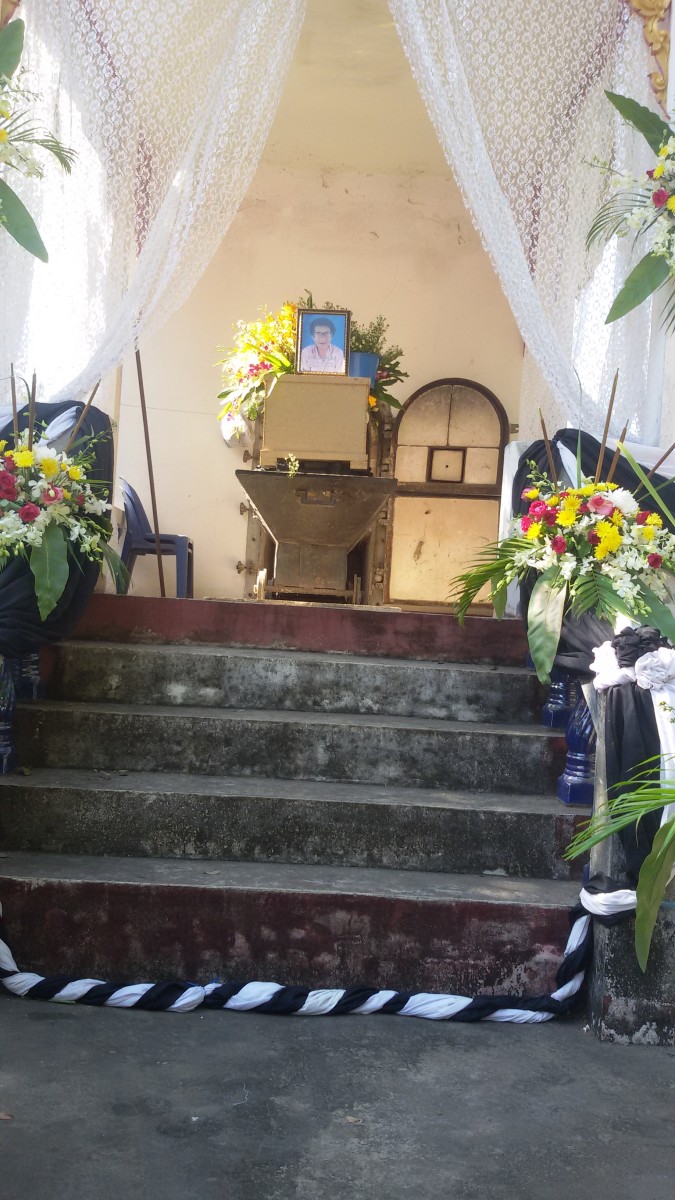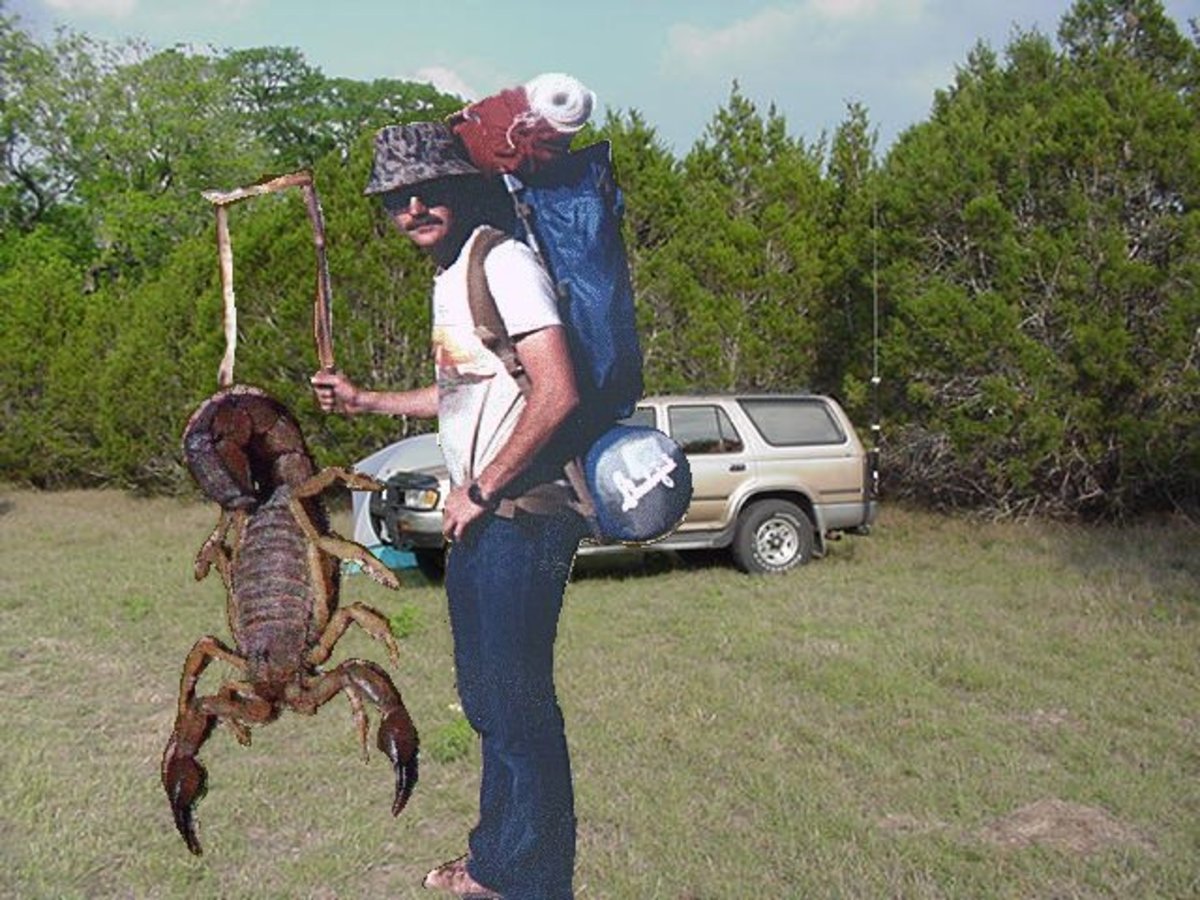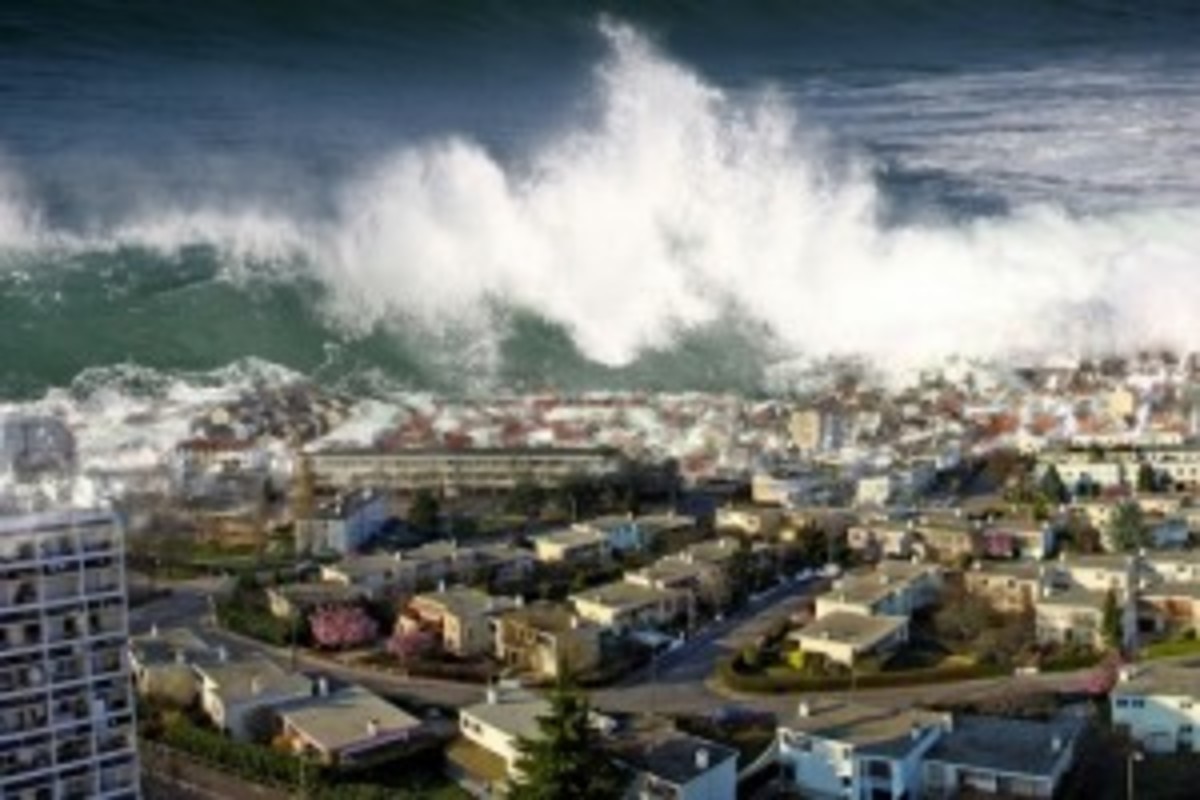- HubPages»
- Travel and Places»
- Visiting Asia»
- Southeastern Asia
The 2004 South Asian Tsunami - A Personal Account From Phuket, Thailand
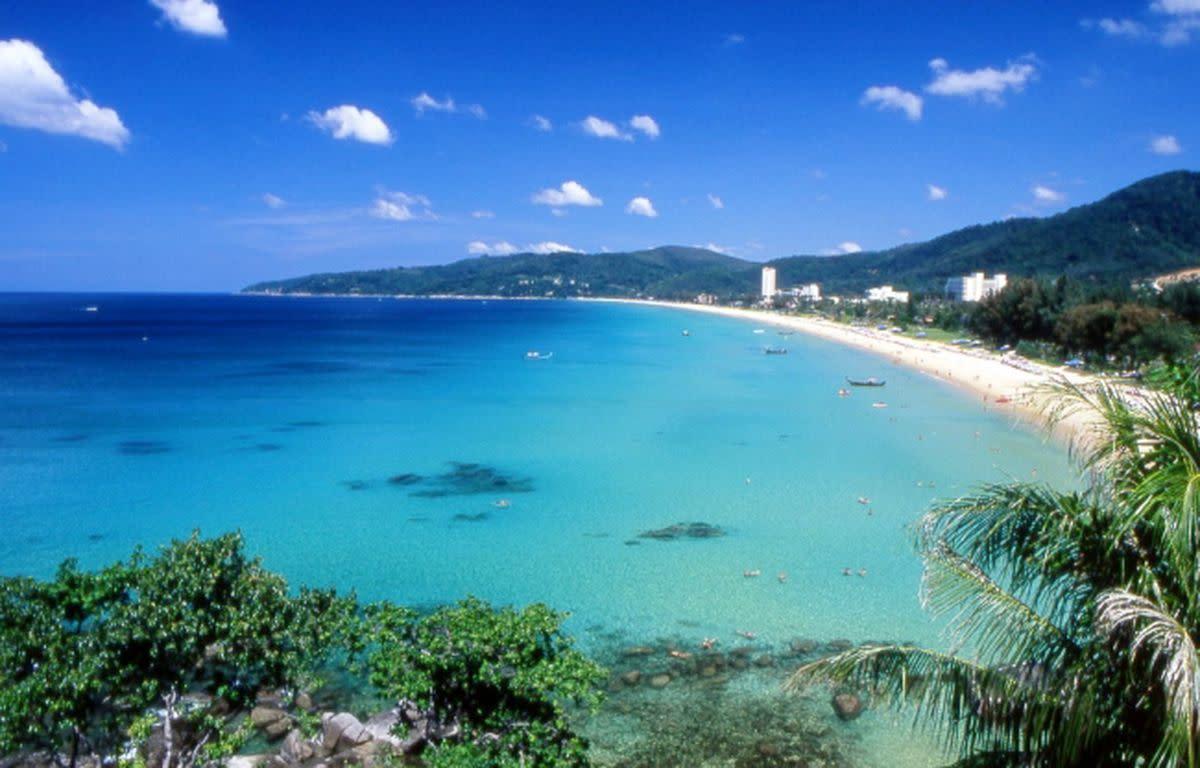
The 2004 South Asian Tsunami
On Sunday, December 26, 2004, Southern Asia was ravaged by an earthquake off the coast of Sumatra, and the following tsunami killing over 240,000 people in 14 countries. In the days following the tsunami, Phuket Thailand became the focus of reports on CNN, BBC, and the world media. The damage to Phuket was severe, however on a much smaller scale than the devastation that was felt in Banda Aceh Indonesia, Sri Lanka and India. At the time of the tsunami, I was living in Phuket with my family and running a small business renting motorcycles to tourists. I will offer my personal account of the day of the tsunami as well as the affect in the days and weeks after.
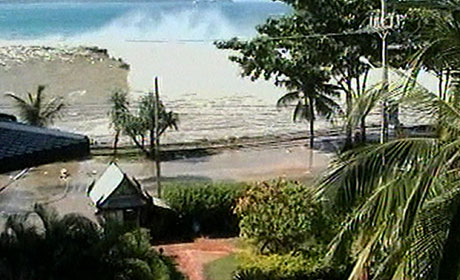
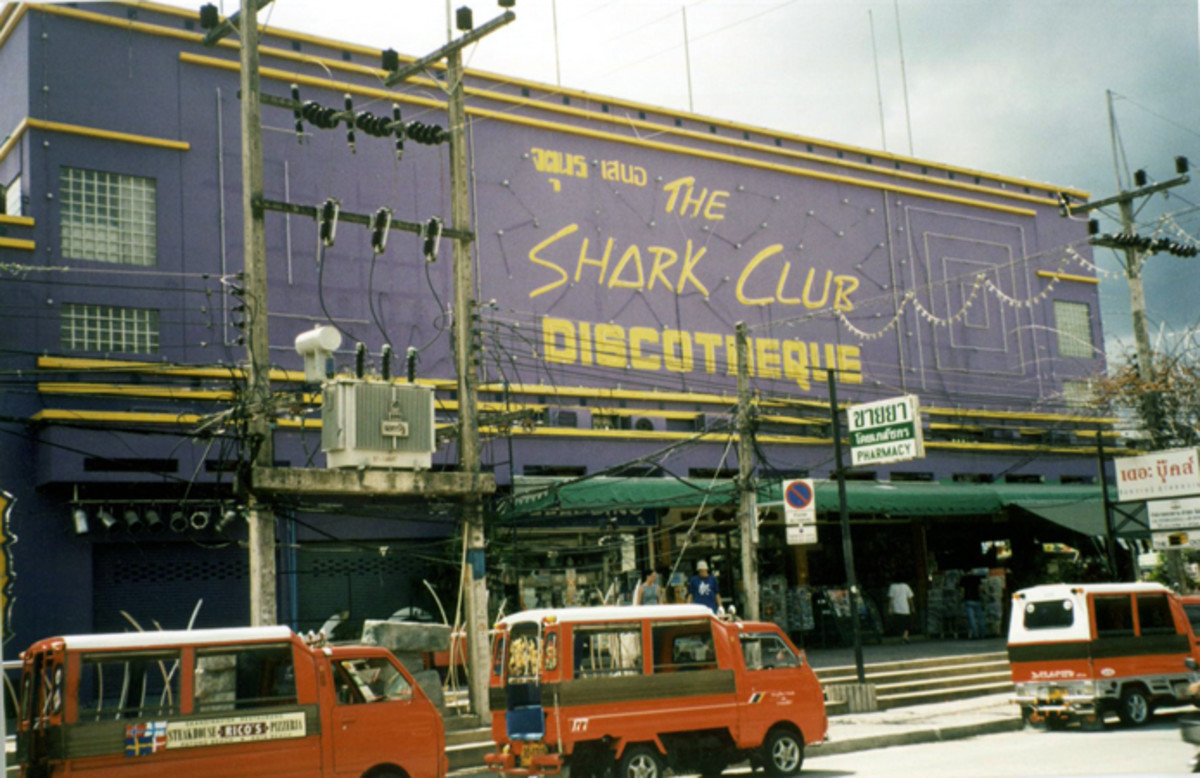
Boxing Day, Dec 26, 2004 -
I awoke in a panic, with my wife shaking me and babbling about some kind of emergency. My head was pounding and my mouth was bone dry, I was feeling the pain of a vicious hangover as a result of all the Christmas cheer the night before. I had only been in bed for 3 or 4 hours when I was rudely awaken. I asked my wife what was the matter, and she said "nam tuem" (the Thai word for flooding). It was a hot morning with the sun beating down, causing me to be drenched with sweat while I slept. So I knew that any flooding caused by rain was totally out of the question. I was not feeling well at all, and all I wanted to do was get back to sleep. I asked my wife if there was a problem with the pipes in the house that might be causing the flooding? She told me that the water was not flooding in our house, but flooding from the ocean in nearby towns. At this point I lost my patience, and I told her that "oceans don't flood, don't be ridiculous!", and I asked her to leave me alone so I could go back to sleep.
After only 5 more minutes, she was shaking me again, insisting that there was a true emergency. I was very annoyed, and I told her firmly "listen woman! Oceans don't flood, not unless there is a tsunami, and there sure as hell will not be one of those today!". I knew that my only chance to get any sleep today would be to convince my wife and her family that there was nothing to worry about. So I jumped out of bed, threw on a pair of shorts and a t-shirt, and told my family that I was going to drive to the beach and check it out, in order to prove that everything was OK. Our home was less than a mile from the beach, and it would take me just a moment to get there on my motorbike.
When I was just 100 meters from the beach, I was horrified with what I saw in front of me. It was an enormous wall of horror heading straight for me! It was not a wave of water however, but a wave of people fleeing. There were men, women and children running, people in cars, on bicycles, and motorbikes. Both lanes of the road were completely filled with people, animals, vehicles of all sorts, all heading in the same direction, the opposite direction I was driving. In order to avoid being crushed by the stampede, I was forced into a high speed u-turn.
When I arrived back at home, there was no doubt in my mind that something serious was happening. I told my family that I suspected that there might have been a tsunami, however most Thais had never heard of a tsunami prior to 2004. They really had no idea what this was, making it all the more frightening for them. I decided to call a friend that owned a bar just 50 meters from the beach. He was calm, he told me that there was some kind of very small tsunami, and that some chairs had washed up from the beach onto the road just in front of his bar. He told me that everything was alright now, and asked me if wanted to stop in for a beer.
I was shocked by how calm he was, and I was alarmed by the fact that I had learned in school that minor earthquakes are often followed by much larger aftershocks, and a tsunami that follows could also be much larger. We locked our home and went running up the hill just across from where we lived. When we reached high ground we could see thousands of people had fled to escape the danger of another tsunami. Many people told stories of the water coming into their homes or businesses that were near the beach, but amazingly nobody told us any stories of witnessing death. We learned later than in nearby Patong Beach, there were hundreds of deaths in beachfront hotels and shops, and people on the beach that morning were swept away.
We returned home after several hours of sitting in the hills, and while I felt comfortable that we were no longer in danger, my wife's family spent the night on the hilltop, where they would sleep for the next few weeks. They would spend the day at home, however they were unable to sleep in the house, so they would pack sleeping bags and blankets and head up the hill every evening. When we learned of the damage the tsunami caused, it turned out that there was little damage in our area, however just over the hill in Patong, the entire beachfront was ravaged.
The following day, we learned that tourists that had been traveling in tour groups had been rounded up in the middle of the night, and forced to check out of their hotels. Some people told us that they protested, and had no intention of leaving, but they were forced to board buses and relocated to other cities in Thailand. The reports we would see on television would prove to be far more horrifying than any of the events we had witnessed, or even heard of anyone witnessing. While watching reports on CNN and BBC, I noticed on several occasions that they would be conducting a live telephone interview with one of their reporters located in Phuket. They would announce that "Jonathan Head was reporting live from Phuket Thailand", and while the audio feed was coming from Phuket, the video images on the screen would be showing the devastation in Banda Aceh Indonesia.
This theme was repeated for weeks, the screen would show entire cities flattened, with no buildings left intact, and the audio would repeat "Phuket Thailand" over and over. I would see reports of corpses in the streets, no access to food and water, and the spread of disease being imminent. Just a few days later, I received a phone call from my family, insisting that I come home immediately on the next flight. They had seen the reports on CNN, and they thought that my life was in grave danger. I explained to them that while several hundred people had lost their lives in Phuket, there was no lack of food or water, and the reports on CNN were grossly exaggerated.
The remainder of the tourist season would prove to be a complete write off, almost all reservations would be cancelled. The fear mongering and sensationalism would prove to be more devastating to local businesses than the tsunami itself. Several hundred millions of dollars would be raised by charities all over the world in order to provide support for those displaced by the tsunami, and in the end, almost all of this money would be gobbled up by corrupt government officials. Land owners would get government funds to help them rebuild their property, and they had exercised their right to cancel their contracts with renters, giving them zero compensation, and then raising the cost of rent and offering the renovated property to the highest bidder.
Several days after the tsunami, I went in to Patong Beach to see what the damage looked like. What I saw was quite shocking, aside from the destruction on the beach road, the retail shop owners that were able to recover any of their goods from their damaged stores, were now selling these goods on the streets for as little as 10% of retail value. People were so afraid that they simply wanted to sell out and move away from the ocean, vowing never to return to Phuket. For months after the tsunami, just the slightest rumor would cause people to go running to the hills, and this would happen as often as several times per week.
It would be almost a year before things would get back to normal, by this time many people would have lost their businesses or fled Phuket out of fear of another tsunami. The next tourist season would see more tourists than ever flocking to Phuket, but the good fortune would prove to be short lived. In 2006, Thailand's popular Prime Minister Thaksin Shinawatra was ousted by a military coup. There would be images of tanks in the streets of Bangkok shown on international television. Political instability has plagued Thailand ever since, with violent political demonstrations including the closure of the country's airports in 2008.
I left Phuket in 2009, moving north to the city of Chiang Mai. I have fond memories of my time in Phuket, but a lot has changed since 2004. Phuket is bigger, more crowded and a lot more expensive. The Phuket that I knew then is now gone and lost forever, now a world renowned tourist resort destination with 5 star hotels and resorts. It is no longer possible to enjoy the quiet Island lifestyle that I had fallen in love with.

